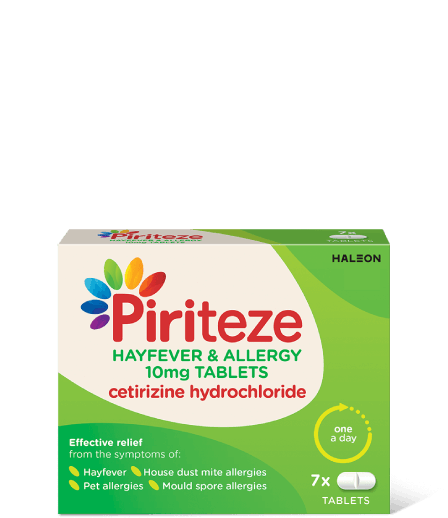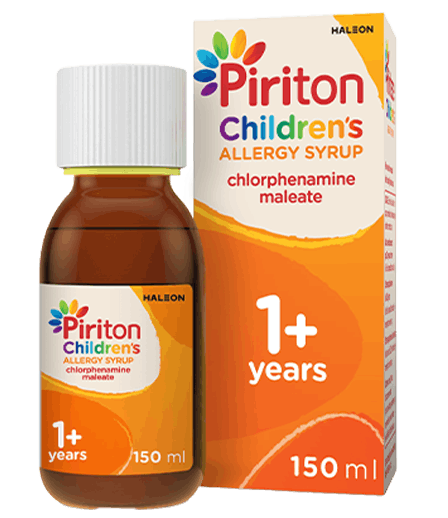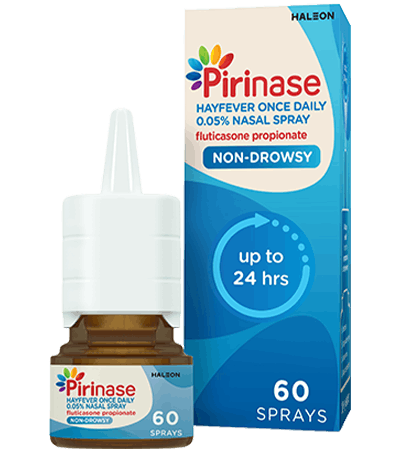Pirinase Hayfever Once Nasal Spray contains fluticasone propionate. Always read the label.
*Contact mystory.gb@haleon.com for verification.
**in some cases two applications in each nostril may be required, as part of the once daily dose.

Allergy relief that acts in 60 minutes
Piriteze Hayfever & Allergy Tablets contain cetirizine at maximum strength to hit hay fever hard and provide long-lasting relief from a range of other allergies with one daily dose.

Fast allergy relief for the family that acts in 30 minutes
Piriton Children's Allergy Syrup provides effective and fast allergy relief from hay fever and other allergies.




